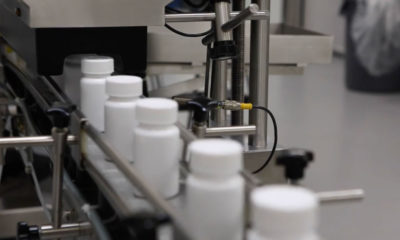If you are trying to lose weight or are watching your sugar intake because of diabetes, you may be very interested in the latest study on artificial sweeteners and whether they are beneficial or harmful.
Sugar vs. Sugar Substitutes
Sugar has been deemed a toxin by researchers and doctors alike who say it can disrupt the normal hormonal cycles of the body and harm internal organs. Excessive consumption is one of the primary causes of metabolic disorders and obesity.
To combat the alleged ill-effects of sugar, the industry created, and the U.S. Food and Drug Administration approved a list of high-intensity artificial sweeteners that have few to no calories, such as:
- Saccharin – sold under the brand names– Sweet and Low, Sweet’N Low, Sweet Twin, and Necta Sweet
- Aspartame – sold under the brand names Nutrasweet, Equal, Sugar Twin
- Acesulfame potassium – sold under the brand names Sunett, Sweet One, and listed in ingredients as Ace-K, acesulfame K
- Sucralose – sold under the brand name Splenda
- Neotame – sold under the brand name Newtame
- Advantame – used in food as flavor enhancer and sweetener
- Steviol glycosides – sold under the brand name Stevia
After so many artificial sweeteners hit the market, researchers determined they might not be all that good for you. In fact, some studies have concluded that artificial sweeteners can increase obesity, metabolic disorders, diabetes, and even cancer.
To get a better understanding of the risks and benefits of artificial sweeteners, a group of researchers assessed and analyzed 56 existing studies involving child and adult participants and compared those with low/no intake of sugar substitutes against those who consume more. The study authors looked at body mass index, weight, behavior, mood, blood sugar levels, oral health, cardiovascular disease, kidney disease, and cancer.
Study Results Surprising
After analyzing the studies, researchers report they found no real difference in the health outcomes of those who used artificial sweeteners and those who didn’t. Study authors said that no ‘statistically or clinically relevant’ outcome was determined between those who used artificial sweeteners and those that didn’t, no matter their level of intake.
Some previous smaller studies have found weak and non-compelling evidence that artificial sweeteners could help reduce blood sugar levels and body mass index. Researchers have also reported some small weight loss in people who consumed small amounts of artificial sweeteners, but the evidence was also non-compelling. And these same results were seen in child participants where sugar substitutes could slightly reduce weight gain but had no effect on body mass index.
The study reported that there was no good evidence of any benefits of artificial sweeteners, noted that potential harms from the use of artificial sweeteners could not be ruled out. Study authors noted that more substantial studies were needed to determine the effects of sugar substitutes on obesity, weight, diabetes risks, and kidney disease.
But sugar substitutes are increasing in popularity and have been for quite some time. So, understanding the risks and benefits of these products is extremely important for consumers, especially diabetes patients who routinely use these products daily.























